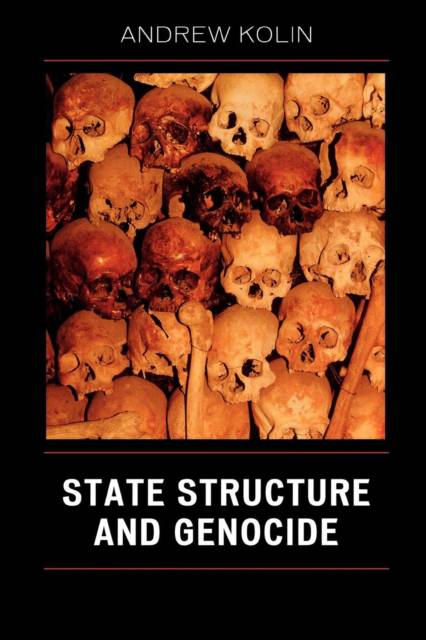
- Afhalen na 1 uur in een winkel met voorraad
- Gratis thuislevering in België vanaf € 30
- Ruim aanbod met 7 miljoen producten
- Afhalen na 1 uur in een winkel met voorraad
- Gratis thuislevering in België vanaf € 30
- Ruim aanbod met 7 miljoen producten
Zoeken
Omschrijving
State Structure and Genocide presents a theory of the universal nature of genocide. The book explores why genocides occur in various societies and explains the existence and persistence of genocide in relation to how governments function. Professor Kolin investigates how governments use violence in both the pre-genocidal and genocidal stages. Through the use of case studies of genocide throughout ancient and modern history, this study examines the shift from pre-genocidal to genocidal society as the institutional reorganization of the state. The theory presented in this book provides evidence of how the state socializes a populace to accept and support ever-increasing doses of violence. This normalization of violence creates "social numbing." In addressing these, Kolin presents a theory of how states are transformed from pre-genocidal to genocidal stages, leading to the formation of a dual state. The state ultimately becomes in part a genocidal state, assuming total control as a police state, and uses violence without legal restraint. An innovative concept, Kolin's State Structure and Genocide will surely broaden the knowledge of political science.
Specificaties
Betrokkenen
- Auteur(s):
- Uitgeverij:
Inhoud
- Aantal bladzijden:
- 94
- Taal:
- Engels
Eigenschappen
- Productcode (EAN):
- 9780761839712
- Verschijningsdatum:
- 1/03/2008
- Uitvoering:
- Paperback
- Formaat:
- Trade paperback (VS)
- Afmetingen:
- 160 mm x 225 mm
- Gewicht:
- 149 g

Alleen bij Standaard Boekhandel
+ 137 punten op je klantenkaart van Standaard Boekhandel
Beoordelingen
We publiceren alleen reviews die voldoen aan de voorwaarden voor reviews. Bekijk onze voorwaarden voor reviews.







